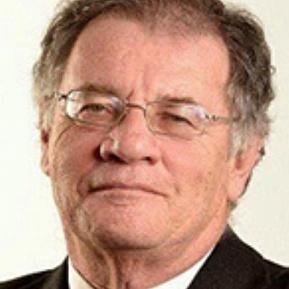
OpEds

Judicial independence critical for democracy – in SA and Israel
The Israeli Supreme Court has built up a formidable reputation over many years as a fierce and independent custodian of the rule of law and the rights of all those who live within the state of Israel. Constitutional lawyers like myself were particularly in awe of former president of the Supreme Court, Aharon Barak, who served in that role between 1995 and 2006.
Though Israel doesn’t have a written Bill of Rights, under Justice Barak’s leadership, the idea of fundamental human rights in Israel was founded upon a recognition of the value of the human being, the sanctity of human life, and the principle that all persons are free. In this endeavour, Justice Barak relied on the Basic Law, which was designed to protect human dignity and liberty in order to promote the values of the state as both Jewish and democratic.
It’s beyond the scope of this column to traverse the judgments written in particular by Justice Barak which vindicated these principles. Suffice to say that the Israeli Supreme Court became an important buttress against the unfettered authority of the executive and a defender of basic human rights.
To a considerable extent, the Israeli courts have continued in this tradition. Last week, the Israeli High Court announced that it had disqualified Shas Chairperson Aryeh Deri from serving in a ministerial position following the latter’s criminal conviction last year and subsequent suspended sentence.
In spite of this conviction, Deri had been appointed health minister and interior minister in the new Netanyahu government. Even Netanyahu buckled under the court’s ruling, and dismissed Deri from his cabinet.
This reflects the court’s much deserved reputation as a protector of human rights in particular, the rights of minorities including Arab citizens, LGBTQ (lesbian, gay, bisexual, transgender, queer) citizens, as well as reform and conservative Jews who desire the same freedom and rights of religious practices as Orthodox and ultra-Orthodox Jews.
The Netanyahu government now intends to pass legislation which will grant the government total control over the appointment of judges, including to the High Court, laws to limit the High Court’s ability to strike down legislation, and to enable the Knesset to relegislate laws that have been struck down by the court.
For anyone who believes in the rule of law and the independence of the judiciary, these are events which extend way beyond the description of “disturbing”.
An independent judiciary is a vital component of any democracy. Focusing not on Israel but on our own South Africa, it should be evident to all readers that the South African judiciary after 1994 has become the central custodian of human rights, in particular its constitutional governance in general, and it has ensured that the government is held accountable for arbitrary decisions it has made.
Though under apartheid there were a number of judges, including from our own community (I think particularly of Judges Gerald Friedman and Richard Goldstone) who sought to preserve the substance of the rule of law within the context of a racist authoritarian government, the judicial institution after 1994 as a whole has emerged as fundamental to ensuring that South Africa remains on a democratic path.
The essence of the jurisprudence that has been developed, particularly by the Constitutional Court, is that all public power should be subjected to legal scrutiny.
Neither the legislature not the executive can simply be permitted to exercise their vast powers without any concern for operating within the contours of legality. Judicial review of executive decisions and legislation that entrenches the constitutional rights of the citizens of this country is a powerful mechanism for ensuring that the foundational rights upon which the society was supposed to be based continues to operate. These rights are in terms of the Constitution, and thus in an open and democratic society based on principles of freedom, equality, and dignity.
South Africa has a sorry past when during apartheid, the legislature sought to override judicial decisions.
That was the case, for example, in the so-called High Court of Parliament case in which the National Party sought to make Parliament the highest court in the land and therefore be capacitated to overrule the then highest court being the Appellate Division of the Supreme Court. The drafters of our democratic Constitution crafted a Bill of Rights for South Africa to ensure that the past should never be repeated, and the inextricable link between democracy and the value of the rule of law be protected.
It would be foolhardy to ignore the levels of corruption and other forms of criminal activity which have engulfed South Africa, particularly over the past 15 years. All of these acts are a cancer on the constitutional body of the country. But take away an independent judiciary and the ability of citizens to approach courts to hold the government accountable for unlawful acts, South Africa wouldn’t just be in a far worse position than it is today, it wouldn’t be able to lay claim to be a democracy in substance.
The lesson, therefore, is that changes to the legal structure which destroy the capacity of a judiciary to act in an independent fashion and hold public power to account result in a long and torturous road towards an authoritarian regime.
- Judge Dennis Davis is the retired judge president of the Competition Appeal Court who teaches law at the University of the Witwatersrand, University of the Western Cape, and University of Cape Town.











yitzchak
January 26, 2023 at 4:05 pm
M’Lord I am a little puzzled here by the omissions.
Like the Trump political nominations to the US supreme
SA has a problematic selection process to our courts through the Parliamentary Judicial Services Board.
( and the appointment of political appointees to our courts and the anticipated warping of judicial process)
In Israel nobody will be able to say “Your Honour” in the future because there will be none
Quo Vadis.?
צדוק
January 27, 2023 at 11:50 am
I think that in his comments about SA, Hon Davis has drunk too deeply from the ANC kool-aid.
As the excellent “J’Accuse” you screened makes clear, when the judiciary marches to the same beat as the atrocity perpetrators/is captured, justice is ill-served.
The Judicial Service Commission is openly practicing reverse-apartheid racism and inclined towards cadres or “Struggle” candidates. The predictable consequence has been a decline in judicial standards [Hlope?] and an anti-business — “pro poor” [sic] — bias that ignores commercial and other realities.
This has been aggravated by a supine or conniving NPA/PP/SAPS complex.
The result is a decline in investment, particularly in homes-to-rent and Kenya, Mauritius and others grabbing our role as “gateway to Africa”; there can be few Jewish or professional class families in SA that have not lost members to the braindrain.
Basil Dubb
February 10, 2023 at 11:04 am
” a long and torturous road towards an authoritarian regime.”
Israel is taking a short cut towards this goal